Nerds in film: Why the pasty-faced, spectacle-wearing, socially awkward types are having the last laugh
As the new film ‘BlackBerry’, about the group of Canadian misfits who designed the BlackBerry phone, premiers at the Berlin International Film Festival this week, Geoffrey Macnab looks back at the wave of 1980s nerd movies and asks, is the genre making a comeback?
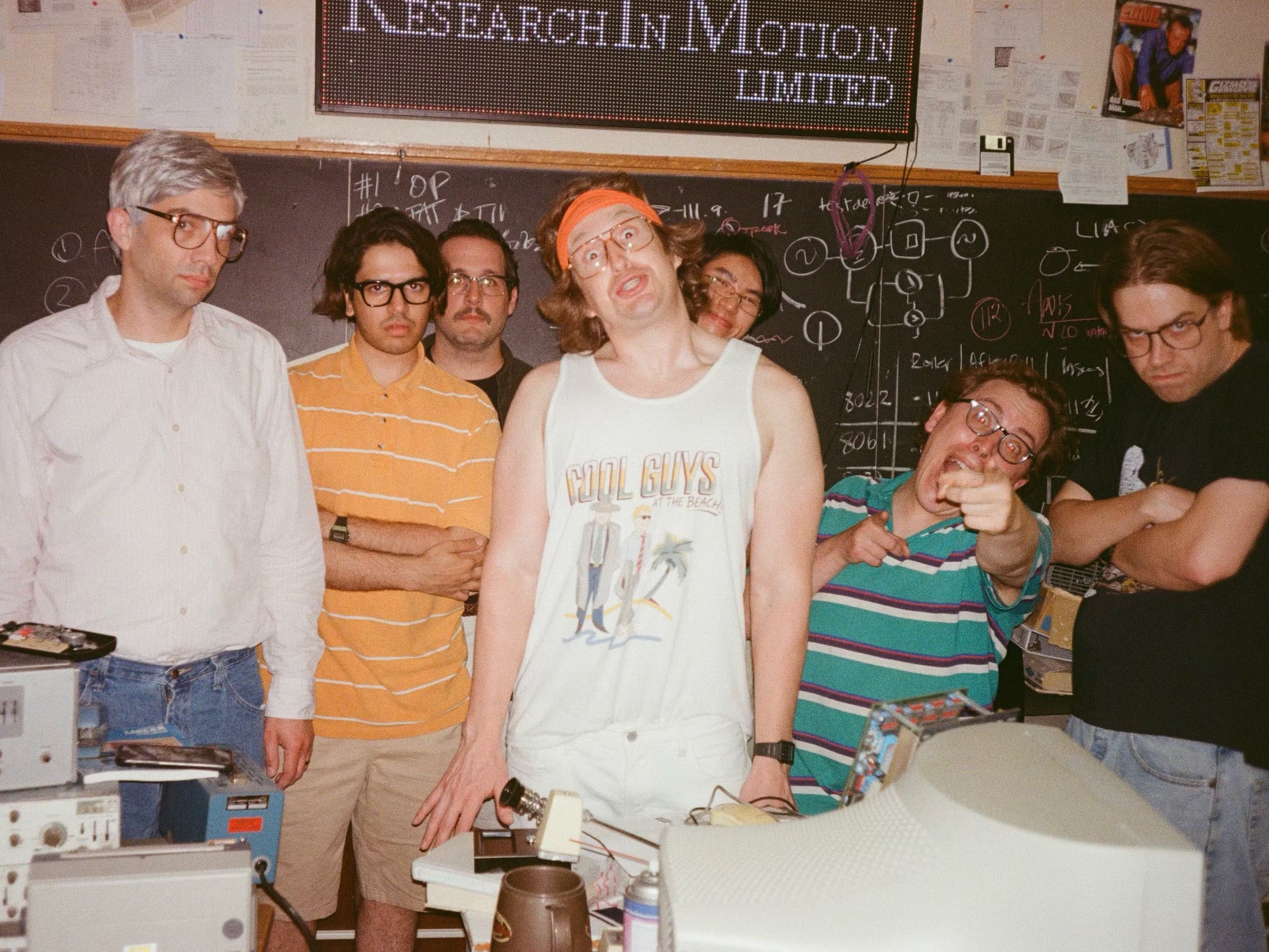
It’s hardly news that the nerds have long since had their revenge, both in movies and in real life. In 1980s cinema, they may have been the butt of the joke, but the pasty-faced, spectacle-wearing, socially awkward types ridiculed then have become the tech billionaires and Silicon Valley savants who control the way we live now.
In the new comedy-drama BlackBerry, which premiered at the Berlin International Film Festival a few days ago, the nerds are back on screen. The film tells the jaw-dropping true story of how desperate and ruthless businessman Jim Balsillie (Glenn Howerton) wrangled a group of Canadian misfits working for a no-hope company called Research In Motion (RIM) into designing an interactive mobile phone that could send emails.
Before Balsillie came along, the all-male group of RIM employees would spend most of their time in the office watching Raiders of the Lost Ark videos or playing computer games. With their hard-driving boss goading them, their device, with its sleek design and thumb-operated keyboard, achieved a 45 per cent share of the global mobile phone market. They became kings of the world... before the company collapsed in 2013. Today, BlackBerry survives as a cybersecurity software outfit. Its share of the mobile phone market is roughly 0 per cent.
BlackBerry’s director Matt Johnson, 37, who also co-stars as one of the film’s geekiest characters, understands from his own youthful experiences the agonies that nerds used to endure when school or workplace bullies picked on them. That perhaps explains why he is so effective at depicting their world.
“I knew what it felt like when I was with all my friends playing Warhammer [a miniature wargame] and somebody from a higher status, from a sports team or something, would come in the room. I knew that feeling so well, I could taste it,” commented Johnson during the film’s Berlin International Film Festival press conference.
The director was describing a scenario familiar to countless other stories involving nerds and their oppressors. They’ll be happily solving algebra problems or playing chess with friends when the alpha male stomps into the room, threatens them with violence and turns their world upside down. This is precisely what happens to the computer programmers in BlackBerry after Balsillie walks into their office for the first time.
The film is inspired by the book, Losing The Signal: The Untold Story behind the Extraordinary Rise and Spectacular Fall of BlackBerry. RIM was a real company, based in Waterloo, Ontario, but BlackBerry (the movie), especially in its early scenes, has the feel of one of those nerd movies from the 1980s.
Nerds abounded in films of that era, both in front of and behind the camera. Steven Spielberg, the most successful director of the era, has acknowledged that he was a nerd when he was a kid. As he told 60 Minutes in a 2012 interview, he got his own back on the neighbourhood bullies who yelled antisemitic abuse at him by smearing peanut butter on their windows – classic nerd tactics that could easily have been borrowed from a film like Jeff Kanew’s Revenge of the Nerds (1984).
Spielberg’s autobiographical, Oscar-contending film The Fabelmans (2022) shows the nerdy young character based on the director keeping his tormentors at bay by press-ganging them to appear in the films that he was then beginning to make. That way, he could give them orders. The protagonists in Spielberg’s films of the 1970s and 1980s, whether the boy who befriends the alien in ET (1982) or the UFO-obsessed character played by Richard Dreyfuss in Close Encounters of the Third Kind (1977) have nerdish qualities. Even the dashing Indiana Jones, the academic who’s also a kick-ass adventurer, is a wish-fulfillment fantasy figure for nerds.
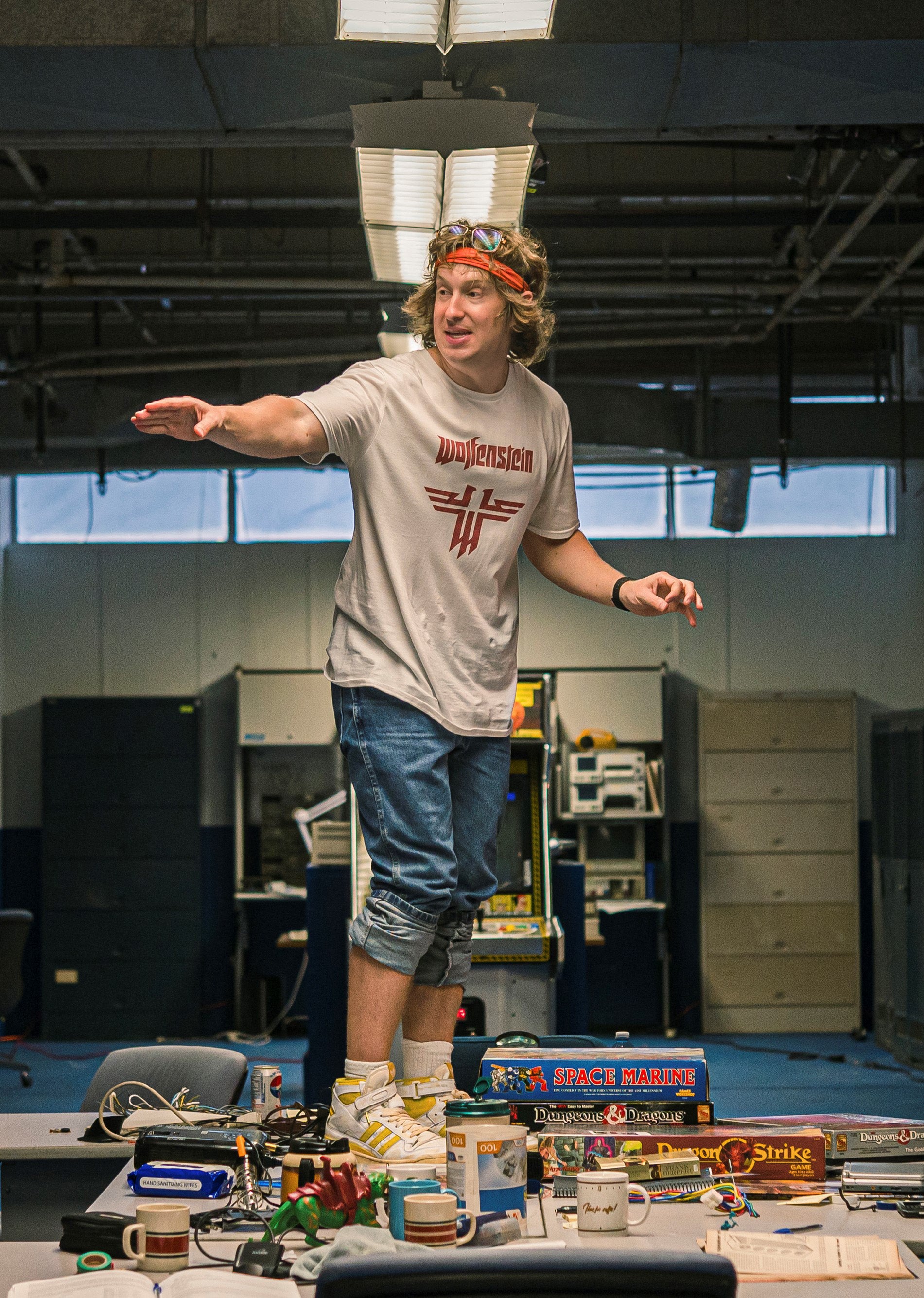
Many of the most popular actors of the era, for instance Rick Moranis, the star of 1989’s Honey, I Shrunk the Kids, played on their nerd appeal. Films like Weird Science (1985), in which two friends use their computer to create a dream woman, and War Games (1983), in which a high school student hacks into a military computer and risks starting a world war, had very nerdy protagonists. We all know the types. They’re almost always male. They wear glasses and their shirt pockets are stuffed with pens. They may well have braces on their teeth too.
Revenge of the Nerds is the quintessential 1980s nerd picture. This is a surprisingly cruel and crude comedy. During its first half, the nerds suck up punishment. The jocks from the football team forcibly evict them from their student house and they’re made to sleep on camp beds in the gym. The high school principal mocks them. The cheerleaders ridicule and humiliate them. When the nerds throw a party, the jocks unleash a herd of pigs just as the disco is getting going. They end up, though, behaving as badly as the worst of their tormentors.
The film has been heavily criticised for its sexual politics, which are very similar to those of raunchy comedies like Animal House (1978) and Porky’s (1981). The nerds spy on the cheerleaders in the shower, film them naked and steal their underwear. They then smear liquid heat in the jockstraps of the football team members.
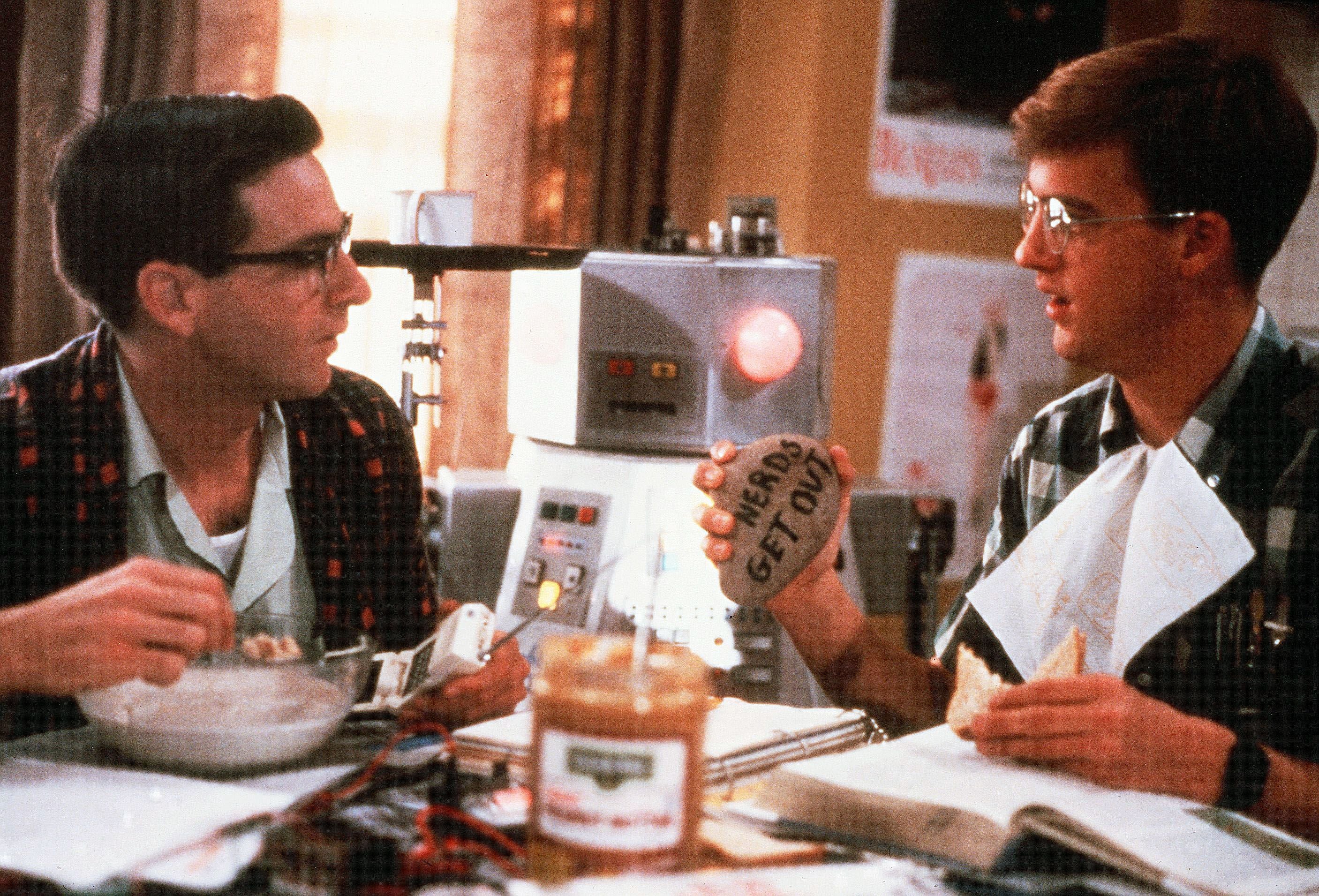
In one notorious scene, a masked nerd pretends that he’s a jock so that he can have sex with one of the cheerleaders. “In a way, it’s not excusable,” director Kanew later reluctantly admitted to GQ about the grotesque and exploitative sequence, which simply wouldn’t be tolerated in a mainstream comedy today.
In spite of its crassness and retrograde sexual politics, the film turned into a huge hit and spawned several sequels. Forty years on, the wheel has turned full circle. The film’s producer Ted Field revealed in 2019 that he was developing a new version of the franchise “where we’ve reversed the status of the nerds and the jocks. Everybody wants to be [Mark] Zuckerberg and the movie is about a jock trying to get respect on campus”. In the era of Zuckerberg and Elon Musk, the jocks are now the ones being ridiculed.
Films about bookish outsiders are almost as old as cinema itself. Some of the great screwball comedies from Hollywood’s golden age involve characters who would be described as nerds today. Look, for example, at Cary Grant’s bespectacled and very earnest palaeontologist swept off his feet by the zany heiress Katharine Hepburn and her leopard in Howard Hawks’s Bringing up Baby (1938). There have been endless variations on the theme of the absent-minded professor and plenty of Cinderella-like films about scrawny misfits who turn into heroes.
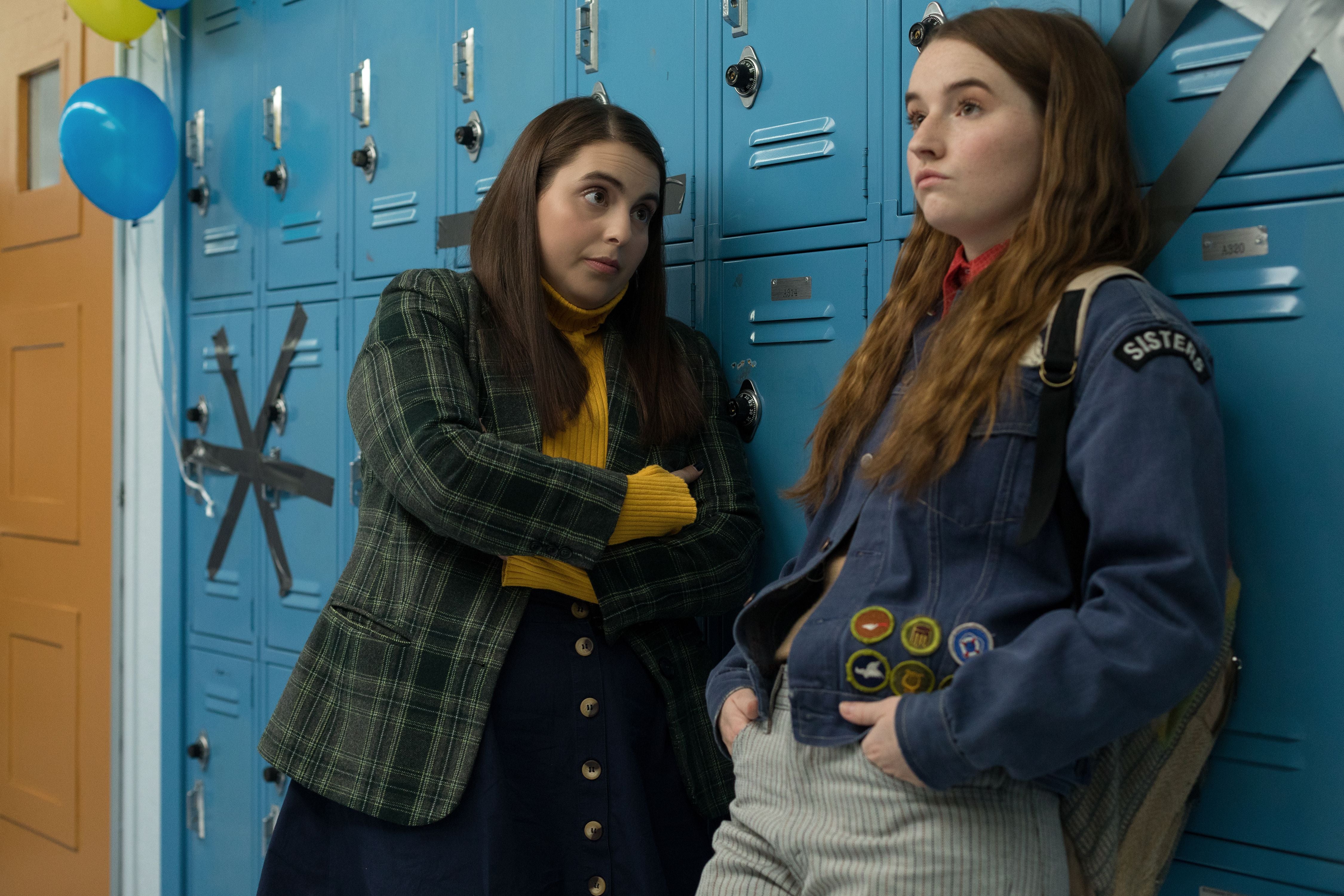
One of the most sharply observed comedies in recent years was Booksmart (2019), Olivia Wilde’s directorial debut in which Kaitlyn Dever and Beanie Feldstein play the geeky, book-loving protagonists who decide on their last night of school that they want to have as wild a time as possible for once. This was notable not only for the sharpness of the writing but for reversing the usual gender stereotyping that characterises nerd movies as a genre. A few exceptions like Todd Solondz’s Welcome to the Dollhouse (1995), starring Heather Matarazzo as the nerdy, long-suffering New Jersey high school anti-heroine, notwithstanding, they’re almost always about male characters.
It’s not the case that nerds have disappeared from cinema screens today. The opposite is true. They’re everywhere now, hiding in plain sight. Four decades ago, when Kanew was hatching Revenge of the Nerds, few in Hollywood would have considered making movies that had industrial designers, computer engineers and CEOs of tech companies as their actual heroes. Today, no one is surprised when pictures are made about characters like Zuckerberg or Steve Jobs. Films like David Fincher’s The Social Network (2010), starring Jesse Eisenberg as Zuckerberg, and Danny Boyle’s Steve Jobs biopic in 2015, starring Michael Fassbender as the Apple co-founder, aren’t regarded as nerd movies but as heavyweight, awards-worthy dramas.
BlackBerry shows this transformation in microcosm. Its most fascinating character is Mike Lazaridis (Jay Baruchel), the in-house genius at RIM. At the start of the film, he is diffident, badly dressed and has a very puerile sense of humour. He is best friends with the equally gauche, headband-wearing Douglas Fregin (Johnson). When the company takes off and Mike becomes a millionaire, he undergoes an unlikely metamorphosis. He has a haircut, buys designer suits and turns himself into a sleek man about town. He also starts ignoring his old friends like Douglas. The audience knows his makeover is really very superficial. All it needs is for the supply chain to go wrong, the handsets to stop working and the share price to dip, and he will quickly revert to his real nerdy self.
It would be a big backward step if Hollywood was to resume making 1980s-style nerd movies. These films had a very nasty undercurrent. They were based on bullying, homophobia and antisemitism. Anyone who didn’t fit in at school or college was classified as a nerd by the white, male “jocks” who ruled the roost and despised the “other”.
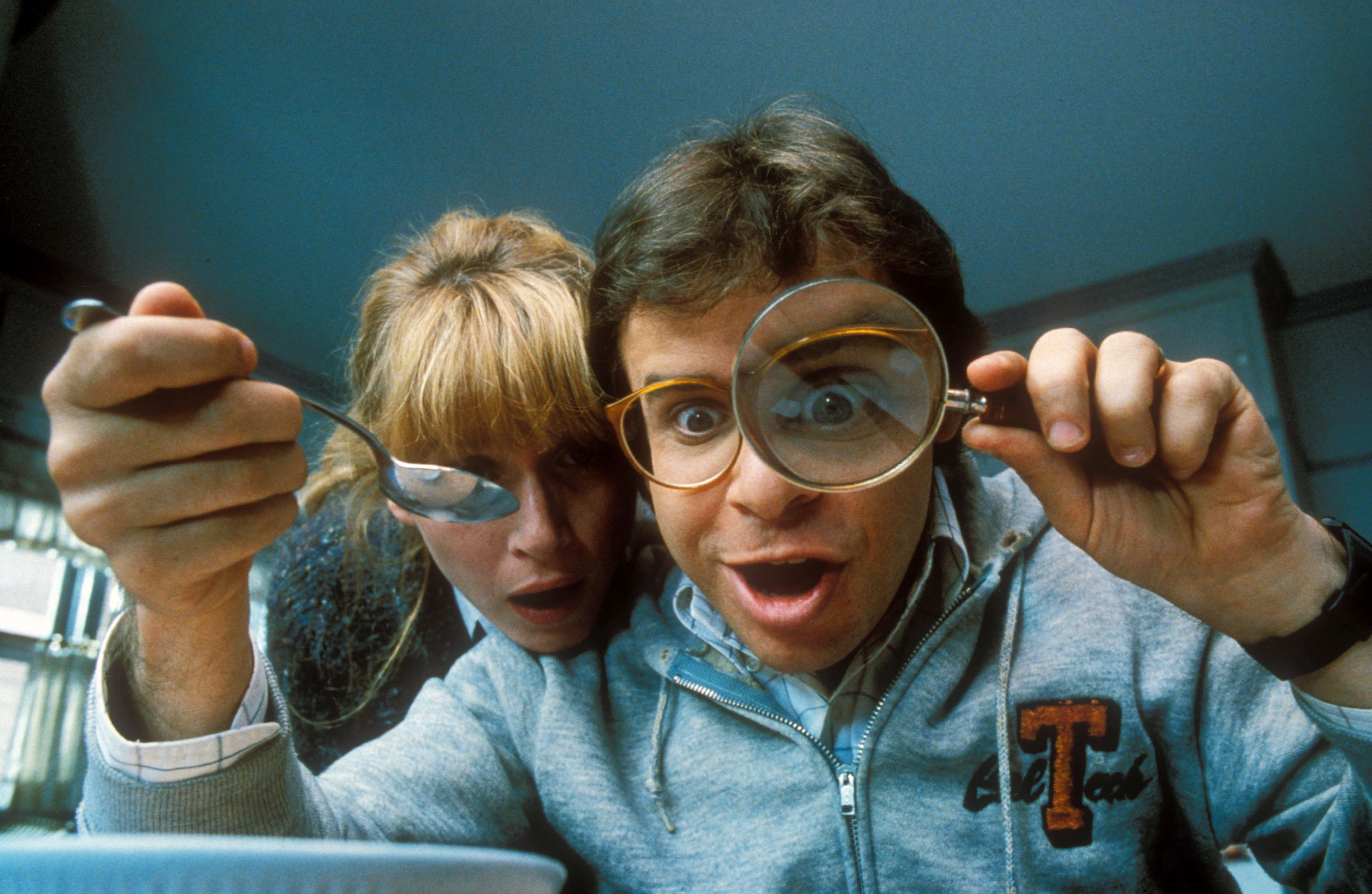
The BlackBerry film, though, serves as a reminder that the tech culture on which we are all now so dependent in our everyday lives was built by nerds. In Hollywood itself, the word has undergone a subtle shift in meaning. In the 1980s, “nerd” was a term of abuse. Now, if you call a film lover like Quentin Tarantino “a movie nerd”, it’s a term of grudging respect and affection – an acknowledgement of extreme expertise.
“They call us nerds ’cause we’re so uncool/they laugh at our clothes/they laugh at our hair/the girls walk by with their nose in the air,” runs the first verse of The Rubinoos’s theme song to Revenge of the Nerds. The song predicts that “one of these days, we’ll turn it around... beautiful people, haven’t you heard, the joke’s on you”.
The song was only half-right. What it didn’t acknowledge was that when the nerds stopped being nerds and started running companies like SpaceX, Twitter and Meta instead, they would behave just as badly, if not worse, than the beautiful people ever did.
‘BlackBerry’ is premiering this week at Berlin Film Festival, 16-26 Feb, and will be released in the UK later in the year
Join our commenting forum
Join thought-provoking conversations, follow other Independent readers and see their replies
Comments


Bookmark popover
Removed from bookmarks